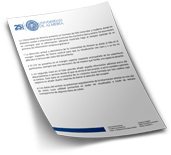Objectives and Competencies
{{pre.error[0].message}}
{{pre.error[0].message}}
The training objectives of the Master's can be summarized as follows:
a) Entering the labour market as highly qualified professionals; or
b) Continue his academic career by successfully completing a Doctoral Thesis.
1. a high level of autonomy in the use of the English language in the professional and intercultural field
2. be able to develop R&D work with an intellectual approach
3. have leadership, common sense, initiative, critical sense, risk capacity, effectiveness, efficiency, etc.
Students of this Master's will therefore be able to satisfy their interests and academic concerns through any of the lines of research offered in the Master's. The subjects offered in it reflect the most important lines of research of English Studies, while accommodating the different currents of thought related to English language, literature and didactics. Students will also be able to develop the skills needed to work in the professional world and respond to the demands of society.
Competencies are the identifiable and evaluable set of knowledge, attitudes, values, abilities and skills, related to each other, which will allow the student to exercise the professional activity according to the requirements and standards used in the corresponding occupational area.
All the master’s at the University of Almeria explicitly include two types of competencies:
The basic competencies for all master’s degrees were defined in R.D. 1393/2007 of 29 October. They will be progressively adapted and as established by the current R.D. 822/2021 of 28 September, which establishes the organization of university education and the quality assurance procedure.
| CB6-To possess and understand knowledge | That students have demonstrated they possess and understand knowledge that expands and improves on that associated with the first cycle, providing them a basis or opportunity for originality in developing and/or applying ideas, often in a research context. |
| CB7-Application of knowledge | That students know how to apply the knowledge gained and are capable of problem-solving in new or unexplored settings within broader (or multi-disciplinary) contexts relating to their field of study. |
| CB8-Ability to make judgements | That students can integrate knowledge and face the complexity of making judgements based on incomplete information which, being incomplete or limited, includes reflections on the social and ethical responsibilities linked to applying their knowledge and judgements. |
| CB9-Communication capacity and social aptitude | That students know how to communicate their conclusions –and the ultimate knowledge and reasons that support them– to both specialized and non-specialized audiences in a clear and unambiguous manner. |
| CB10-Learning skills | That students possess the learning skills that will enable them to continue studying in a way that will be largely self-directed or autonomous. |
The specific competencies provided by this degree are listed in the degree report.
